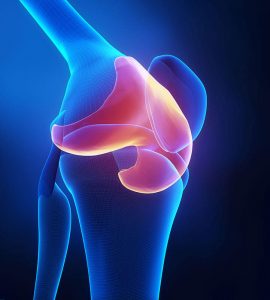
- Bachelor of Medicine, Bachelor of Surgery (Singapore)
- Member of the Royal College of Surgeons (Edinburgh)
- Master of Medicine in Orthopaedic Surgery
- Fellow of the Royal College of Surgeons in Orthopaedics and Trauma (Edinburgh)
Dr James Tan is a fellowship-trained orthopaedic surgeon in Singapore with over a decade of experience in knee surgery, sports surgery and exercise medicine. He has treated elite athletes, including national team members and professional footballers.
With advanced training from the Technical University of Munich, Dr Tan specialises in knee, shoulder, and elbow injuries, cartilage and meniscus repair, and minimally invasive tendon and ligament surgery. Actively involved in research and education, he has led tissue engineering projects and served as Adjunct Assistant Professor at both NUS and NTU medical schools.
What Does a Knee Specialist Do?
A knee specialist is an orthopaedic surgeon with focused expertise in diagnosing and managing conditions that affect the knee joint. This includes:
- Evaluating pain, instability, or limited mobility
- Ordering and interpreting imaging like X-rays or MRIs
- Recommending conservative treatments like physiotherapy or injections
- Performing surgical procedures when necessary (e.g., arthroscopy, ligament reconstruction, or joint replacement)
At our clinic, we work closely with radiologists, physiotherapists,
and sports physicians to provide comprehensive care for every stage of recovery.
Why Choose Us for Specialist Knee Care?
Subspecialty Expertise in Sports & Knee Injuries
We understand how important mobility and performance are — especially for active individuals and athletes. Our knee specialist has extensive experience managing:
- Professional athletes and weekend warriors alike
- Acute injuries on the field (e.g., ACL tears, meniscus injuries)
- Overuse conditions like runner’s knee or jumper’s knee
We offer both surgical and non-surgical options depending on your condition and lifestyle, and tailor recovery plans to get you safely back to activity.
Advanced Techniques, Minimally Invasive Options
We use the latest in arthroscopic techniques, cartilage preservation methods, and biologic injections (such as PRP) to improve outcomes and minimize downtime.
Patient-Centered Care
From your first consultation to your last follow-up, our team ensures that you are fully informed, comfortable, and empowered to make decisions about your treatment.
Common Knee Conditions We Treat
Our Singapore knee specialist regularly diagnoses and manages a wide range of conditions, including:
- ACL (Anterior Cruciate Ligament) Tear
- Meniscus Tear
- Meniscal Cyst
- Cartilage Injuries
- Knee Arthritis
- Patellar Tendonitis (Jumper’s Knee)
- Runner’s Knee (Patellofemoral Pain Syndrome)
- Knee Bursitis
- MCL/LCL Sprains or Tears
- Knee Dislocation or Instability
- Knee Pain After Injury or Overuse
If you’re searching for a trusted knee specialist in Singapore,
please reach out to us today.
Whether you’re an athlete, a busy professional, or a retiree —
we’re here to help you move better and live pain-free.
Common Knee Treatments and Procedures
We offer a full suite of treatments — from conservative care to advanced surgical options:
Non-Surgical Options:
- Physiotherapy
- Cortisone Injections
- Hyaluronic Acid (Gel) Injections
- PRP (Platelet-Rich Plasma) Therapy
- Activity Modification and Bracing
Surgical Treatments:
- Knee Arthroscopy
- ACL Reconstruction
- Meniscus Repair or Meniscectomy
- Cartilage Restoration Surgery
- Knee Realignment Procedures
- Partial or Total Knee Replacement
Your treatment plan will be personalised based on your condition, activity level, and recovery goals.
When Should You See a Knee Specialist?
Don’t ignore knee pain or instability — early treatment often leads to better outcomes. Book a consult if you experience:
- Persistent pain that lasts more than 1–2 weeks
- Swelling or stiffness that limits your movement
- Pain when walking, running, or climbing stairs
- A popping sound at the time of injury
- Knee giving way or feeling unstable
- Difficulty straightening or bending the knee fully
Even if you’re not sure whether surgery is needed, our specialist can help you understand your options.
Frequently Asked Questions (FAQs)
1. What is the difference between a knee specialist and a general orthopaedic surgeon?
A knee specialist is an orthopaedic surgeon with focused expertise in diagnosing and treating conditions specifically related to the knee joint. While general orthopaedic surgeons treat a wide range of bone and joint issues, a knee specialist handles more complex or recurring knee problems, often including sports-related injuries and advanced surgical procedures.
2. How do I know if I need to see a knee specialist or just a physiotherapist?
If you’re experiencing persistent knee pain, instability, swelling, or limited mobility that doesn’t improve after a few days of rest and self-care, it’s best to consult a knee specialist. They can provide a definitive diagnosis and recommend whether physiotherapy, medication, or other treatment is appropriate.
3. Can a knee specialist help without surgery?
Yes. In many cases, knee pain can be managed without surgery using methods like physiotherapy, medication, joint injections (e.g. PRP, hyaluronic acid), bracing, or activity modification. Surgery is usually only considered when conservative treatments fail.
4. What should I bring to my first appointment?
Bring any prior medical records, imaging scans (X-rays, MRIs), a list of current medications, and information about when the pain started and what worsens or relieves it. This helps the specialist make a more accurate diagnosis.
5. How are knee problems diagnosed?
Diagnosis typically involves a physical examination, a review of your symptoms and activity history, and imaging such as X-rays, MRIs, or ultrasound. This helps the specialist assess the condition of your bones, cartilage, ligaments, and tendons.
6. Do you treat sports-related knee injuries?
Yes. We frequently manage knee injuries in athletes, such as ACL tears, meniscus injuries, patellar tracking disorders, and tendonitis. Treatment plans are tailored to help patients return safely to their sport.




